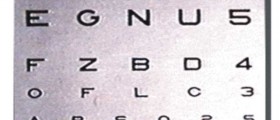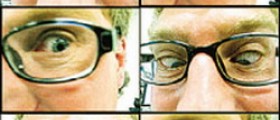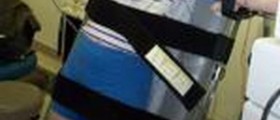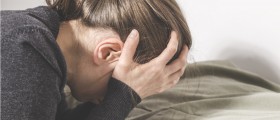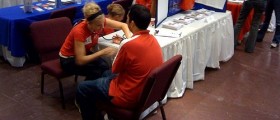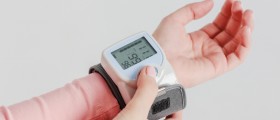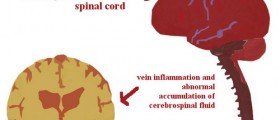Loading...
Loading...
Symptoms of Neurocardiogenic syncope are the following
"Individuals that are prone to neurocardiogenic syncope manifest a spectrum of symptoms ranging from fatigue, vague lightheadedness, recurrent dizziness, near fainting, palpitations, nausea, unexplained sweating, joint or muscle aches, to the most dramatic "the faint". Some people may only have one or more of these symptoms but never progress to fainting. Prolonged fatigue after a modest amount of physical activity is occasionally seen. This post-exertional fatigue can last 24-72 hours, and interferes with many daily activities.
Some develop worse fatigue after such activities as reading and concentrating, and this may be due to the fact that for some, the veins of the arms and legs dilate, thereby allowing more blood to pool, rather than constricting in response to mental tasks."
"
"Neurocardiogenic syncope is a temporary loss of consciousness associated with a drop in arterial blood pressure, quickly followed by a slowed heart rate (Grubb & McMann, 2001, p. 133).
Neurocardiogenic syncope (NCS) is also referred to as vasovagal syncope or neurally mediated syncope. The terms are used interchangeably throughout this web page.
What are the symptoms of NCS?
Neurocardiogenic fainting usually occurs while standing. Emotional stress, stressful condition and pain may trigger an episode, especially among the young (Shah, Gupta & Lokhandwala, 2003). The onset may be abrupt or associated with warning symptoms such as fatigue, weakness, nausea, sweating, pallor, visual disturbances, abdominal discomfort, headache, pins-and-needles, lightheadedness or vertigo (Deering, 2003). Presyncopal patients may also complain of palpitations, vomiting, disorientation, and difficulty speaking clearly or coherently (Grubb & McMann, 2001, p. 60.). Other symptoms that may present before a faint include feeling either warm or cold, tremors, yawning and having a bluish/purple or red coloring to the skin (Alboni, Brignole, Menozzi, Raviele, Del Rosso, Dinelli, Solano & Bottoni, 2001).
During the faint "seizure-like" activity may occur (Grubb, Gerard & Roush, 1991). This convulsive activity is thought to be distinct from a seizure disorder.
Patients are sometimes symptomatic after a faint as well. Patients may complain of symptoms including nausea, clamminess, lightheadedness, headache and malaise (Deering, 2003). Patients may also experience vomiting, abdominal discomfort, weakness, tremors, cold or warm feelings and confusion (Alboni et al., 2001). Patients who experience frequent neurocardiogenic syncope may report symptoms between faints as well, such as chronic fatigue, headache, chest pain, exercise intolerance, heart "flip flops" and an inability to tolerate prolonged standing."-
Loading...
Loading...
Symptoms present in various degrees of severity depending on the patient. POTS can be severely debilitating. Some patients are unable to attend school or work, and especially severe cases can completely incapacitate the patient.
Also you are taking Beta blockers (i.e. probably Atenolol). This drug litterly blocks the hearts ability to beat too fast and slows your heart rate down by diminishing the effects of epinephrine (adrenaline) and other stress hormones that is pumped into your heart.
I have the same problem as you (of course not to that extreme), as it is most common in people with hypertension (high blood pressure). If you stand up too fast, your heart beats harder and faster, yet large quantities of blood is still down in your lower extremeties. Resulting in extremely low blood pressure in the brain. All of your symptoms is your body telling you to "lay down or I will make you lay down" so that it can level out your bodies blood pressure from your legs to your head. Fainting spells is a result of your bodies natural defense to defeat gravity as it workes against your heart.
Try excercising "EVERY" day. 1 hour before work or school each morning (cardio is the best), increase your potassium intake (bannanas and gaterade work), and pick up a pair of compression socks. They are actually used for shin splints but they do help push some of the blood out of the legs and back into the abdomen.
Hope this helps,
Jeremy
Loading...
Loading...
Loading...
As habit, I stretch before I go to bed. Sometimes, nothing really happens, but most of the time something does. Right after stretching, my legs feel weak and I controllably crumble to the bed where I start to feel real dizzy and light headed, sometimes with a tingle sensation in my lips, my whole head, or mt whole body. As that is happening, I am aware, but my vision and hearing is blurred/muffled, and I notice and feel myself shaking back and forth unwillingly. After about 5-20 seconds, it stops with a lingering relaxed and warming sensation.
I've had this for a few years now and it has caused me to faint once and almost faint numerous times, until I was able to control, for the most part, how my body fell and where it landed. This only started happening after I suddenly went off my anti-depressant, Venlafaxine, which at the time, I've been on for 5 years. I went back on it again after a few months because the dizzy symptom scared me. Only, after being on it for a while after that, these 'dizzy spells' never went away. So my doctor prescribed me to wean myself fully onto Prozac. It did nothing for the dizziness, but helped many other unrelated problems. I think that Venlafaxine did something to my brain to cause me to have symptoms of POTS.
If yuo9 think it something else, or have any advise or anything to tell, please do. =)
Loading...
Loading...
Loading...
Loading...
I use to play football in school when i noticed that when it came time to running i began to get dizzy. it began when i started to run lasted only a few seconds but in those few seconds I would strugle to maintain control of the right side of my body. I would lose cence of direction all i could do was try to stay up grab my right arm and pull it in so no one would notice. this continues to this day i am 26 years old and tired of hearing my health care provider tell me he's stumped. my mother thought i was faking to so seeking help was damn neer imposible. has any one else delt with this?
Syptoms: Dizzieness, Confussion, Right side of body limbs are difficult to control right hand curls at the wrist, right foot curls at ankle,
